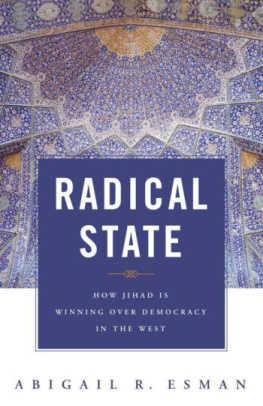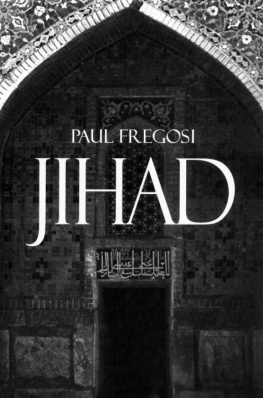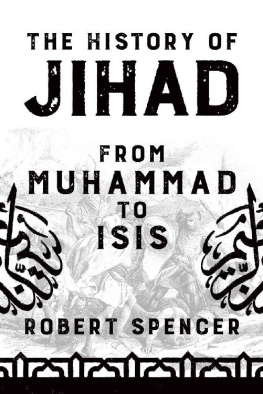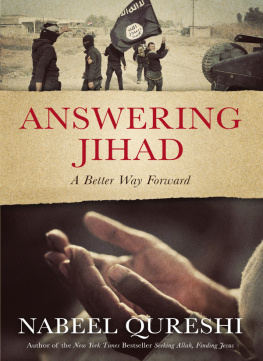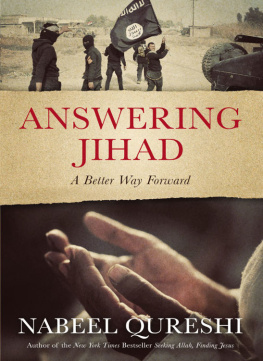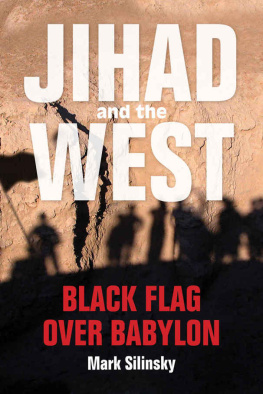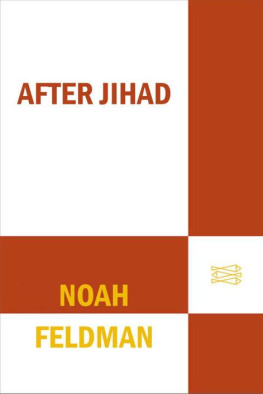Abigail R. Esman - Radical State: How Jihad Is Winning Over Democracy in the West
Here you can read online Abigail R. Esman - Radical State: How Jihad Is Winning Over Democracy in the West full text of the book (entire story) in english for free. Download pdf and epub, get meaning, cover and reviews about this ebook. year: 2010, publisher: Praeger, genre: Science / Politics. Description of the work, (preface) as well as reviews are available. Best literature library LitArk.com created for fans of good reading and offers a wide selection of genres:
Romance novel
Science fiction
Adventure
Detective
Science
History
Home and family
Prose
Art
Politics
Computer
Non-fiction
Religion
Business
Children
Humor
Choose a favorite category and find really read worthwhile books. Enjoy immersion in the world of imagination, feel the emotions of the characters or learn something new for yourself, make an fascinating discovery.
- Book:Radical State: How Jihad Is Winning Over Democracy in the West
- Author:
- Publisher:Praeger
- Genre:
- Year:2010
- Rating:3 / 5
- Favourites:Add to favourites
- Your mark:
Radical State: How Jihad Is Winning Over Democracy in the West: summary, description and annotation
We offer to read an annotation, description, summary or preface (depends on what the author of the book "Radical State: How Jihad Is Winning Over Democracy in the West" wrote himself). If you haven't found the necessary information about the book — write in the comments, we will try to find it.
In Radical State: How Jihad Is Winning Over Democracy in the West, author Abigail R. Esman argues that in large measure, it is actually jihad which has emerged victorious over democracy, not only because of the actions of Muslim terrorists, but because of our own response to extremist Islam in the West. With seemingly best of intentions, Western (European) countries have permitted antidemocratic, ultraconservative Islamic beliefs and traditions to flourish in their societies as theyve responded to the influx of Muslim immigrants to their shores, largely as a result of the guest-worker programs which began in the 1960s and 1970s across Europe. But this multicultural approach has only backfired, creating cultural wars in which even the most intolerant and undemocratic of belief systems and values have been permitted, as governments have turned a blind eye to such atrocities as honor killings, racism, anti-Semitism, the spread of literature extolling violence, and calls for the destruction of the western democratic state.
Esman focuses her narrative on the Netherlands, oft regarded as the most free, stable, and tolerant nation in the West, the paragon of democracy and tolerance. Using Holland as an example, she demonstrates the collapse of democratic values that has occurred in other Western countriesincluding Americaas we struggle against radical Islam. In doing so, she shows how the Western response to the threat of radicalization has at times gone to dangerous extremes, counterbalancing the multiculturalists indulgence of radical Islam with the creation of restrictive, nearly-totalitarian laws and measures that are as destructive and toxic to our future-to free thought, free speech, and equal rights. Radical State uniquely articulates the dissolution of democratic values that have resulted from the actions of both left- and right-wing approaches to the problem. More importantly, the book strives to resolve the critical question of what went wrongbecause to set things right again requires understanding how it all broke apartand we must set it right, or jihads victory over democracy will be complete, and sooner than we may realize.
Abigail R. Esman: author's other books
Who wrote Radical State: How Jihad Is Winning Over Democracy in the West? Find out the surname, the name of the author of the book and a list of all author's works by series.

